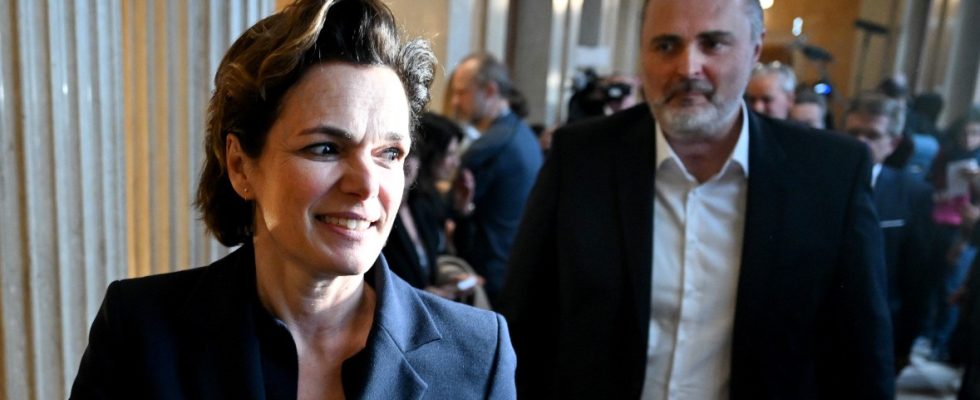The security precautions were roughly the same as when King Charles transported the Imperial State Crown to the coronation: under the strictest surveillance, the ballot papers for the primary election for the presidency of the Austrian SPÖ were brought under supervision and in a convoy to the Renner Institute in Vienna, where the windows were taped and the ballot papers were counted and the online voting recorded under the supervision of a notary and a computer scientist. At 5 p.m. the result of a long power struggle and a two-month decision-making process was announced in an extremely brief press conference. And one thing was immediately clear: the vote of 107,000 party members, at least 72 percent of those entitled to vote, is so close that there is unlikely to be any peace in the deeply divided social democracy.
All three candidates performed almost equally well. The party conference on June 3rd, which is supposed to cement the result with a delegate vote and herald a new era of Austrian social democracy, could offer new surprises. SPÖ officials are already rumoring that the party is splitting.
Rendi-Wegner will probably leave politics
Because the incumbent chairwoman, Pamela Rendi-Wagner, achieved just 31.35 percent with just over 33,000 votes – and thus took last place among the three candidates. Insiders had predicted their victory because the SPÖ members were a structurally conservative party. As she announced before the vote, the doctor will probably leave politics.
Andreas Babler, mayor of the Lower Austrian municipality of Traiskirchen and located on the left spectrum of the party, was the surprise winner, although he only finished second: Contrary to expectations, he also managed more than 31 percent and thus more than the party leader.
The winner takes a tougher course in refugee policy
The winner of the primary election, which according to the party leadership should only represent a “mood picture” and should therefore not be binding, is the Burgenland governor Hans Peter Doskozil. He challenged Rendi-Wagner and intensified the debate about the party’s course with a survey he had commissioned himself, which attested him better chances of success in political competition than the SPÖ leadership. Doskozil was the chief of police in Burgenland during the 2015/16 refugee crisis and subsequently successfully established himself in state politics. The politician follows a restrictive course in refugee policy, but preaches a strong state and public welfare in terms of social policy. He had repeatedly criticized that Rendi-Wagner could not mobilize the voters.
Babler, the runner-up, who only became known nationwide with the primary election and a dedicated campaign, announced after the results were announced that he would call for a runoff election given the close outcome. A clear majority is now needed for the party chairmanship. However, a runoff election is not included in the procedure. With the tailwind that the vote gave him, the struggle for direction in the SPÖ will increase rather than decrease.

